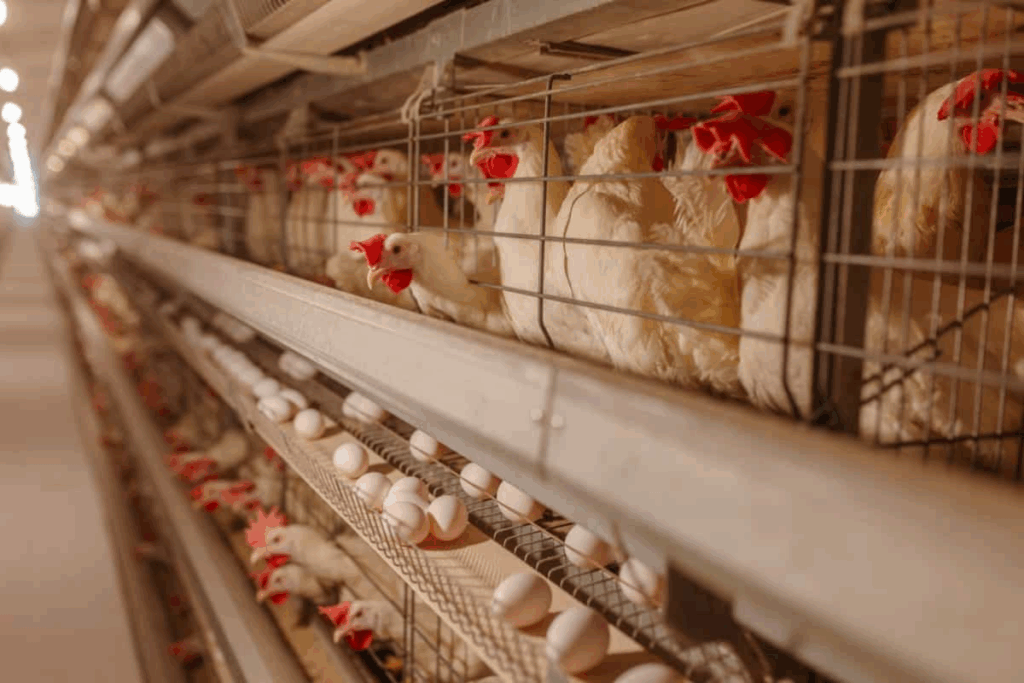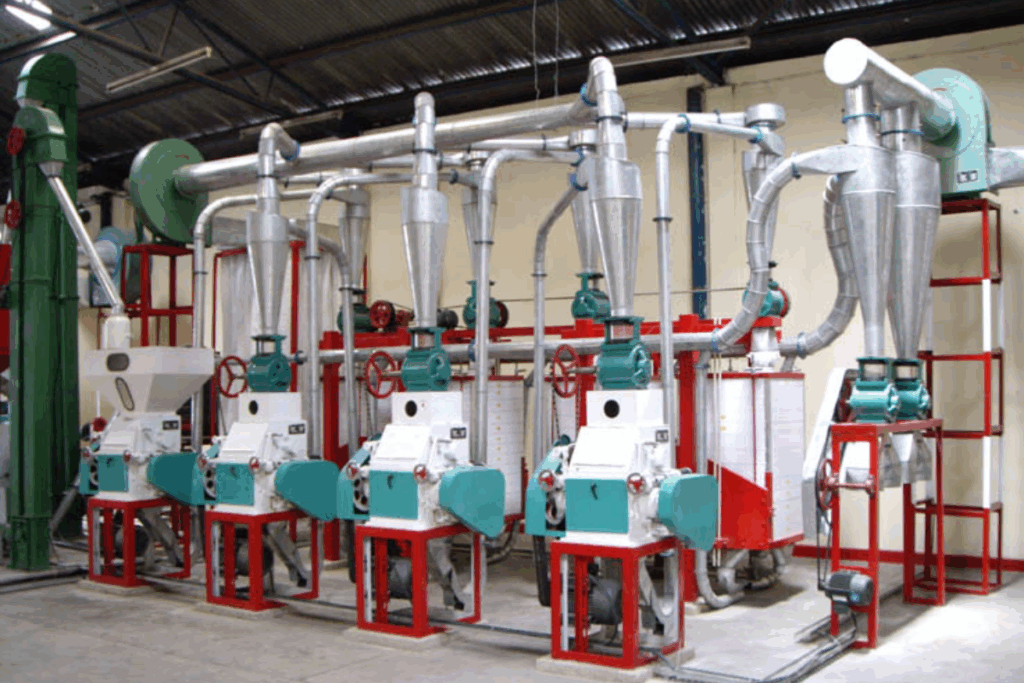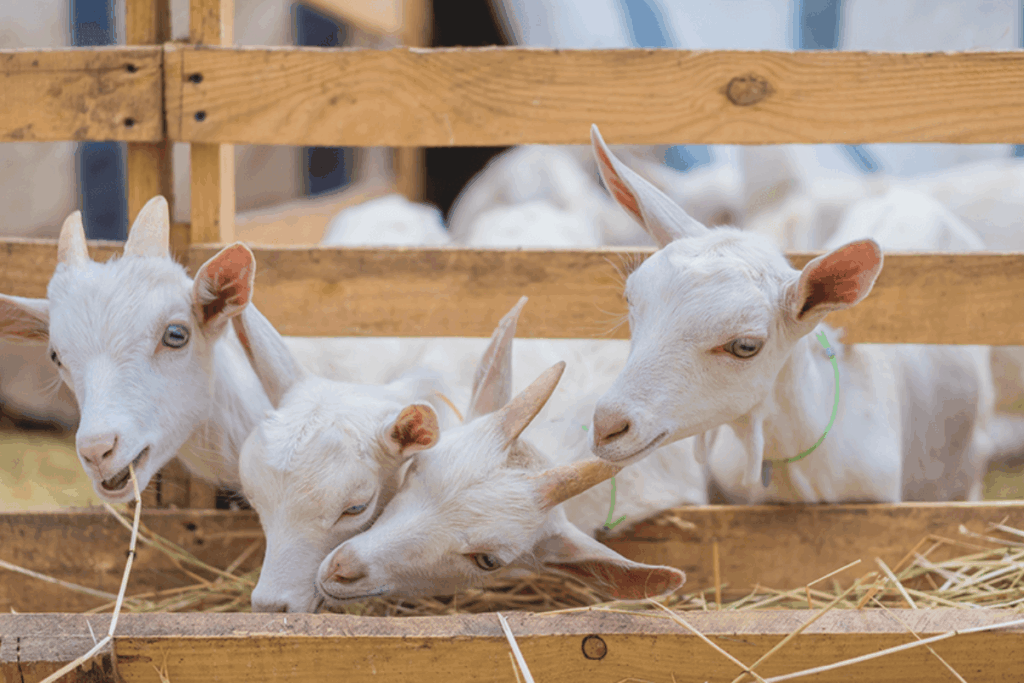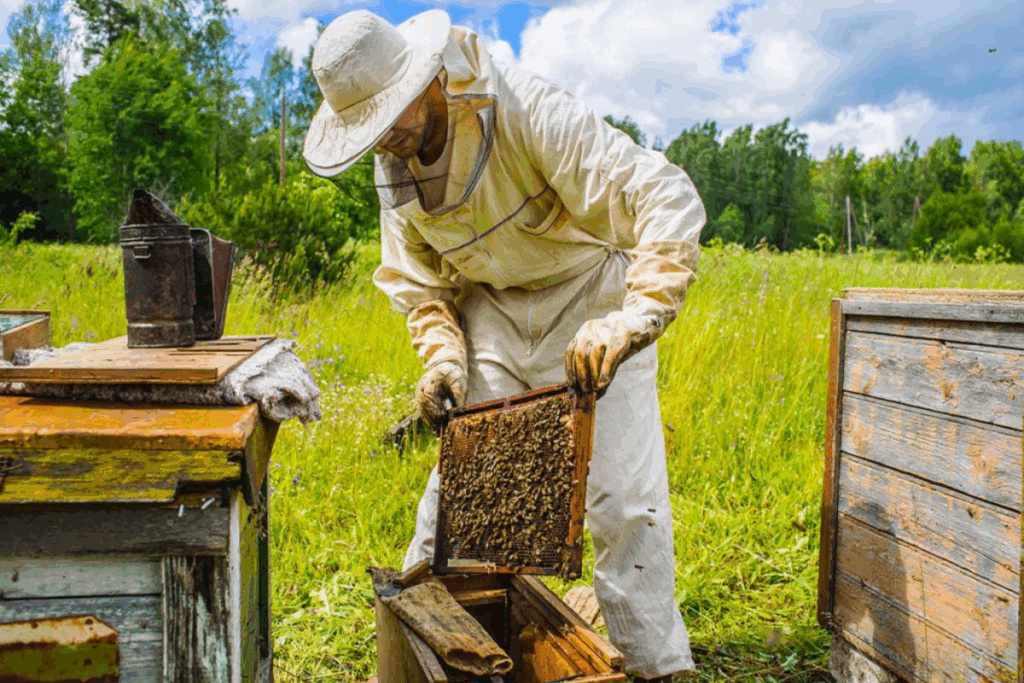Starting your own business in a village is like planting a seed in fertile soil. You have everything you need around you – lower costs, loyal customers, natural resources, and a community that supports each other. Many people think Best Business Ideas in Village in cities, but that is simply not true. Villages offer unique opportunities that cities cannot match.
I have seen many people in rural areas build successful businesses from scratch. They started with small investments and turned them into steady sources of income. Some even grew their village businesses bigger than what many city businesses achieve. The difference was not in where they started, but in how they used what they had around them.
This guide is different from other articles you might have read. I am not going to list random business ideas that sound good on paper but fail in real life. Every idea here is based on actual businesses that are working in Indian villages right now. These are practical, tested, and proven to work if you put in honest effort.
Understanding Why Village Businesses Actually Work Better
Before jumping into business ideas, let me share something important. Running a business in a village comes with advantages that city entrepreneurs dream about. Your shop rent might be five thousand rupees while the same space costs fifty thousand in a city. The person you hire as help might charge six thousand per month instead of twenty thousand.
But money is not the only advantage. In villages, relationships matter more than advertisements. Once people trust you, they become lifetime customers. They tell their relatives, their neighbors, their friends. This word of mouth marketing costs you nothing but brings you everything.
Another thing people overlook is that villages have direct access to raw materials. Fresh milk, vegetables, grains, honey, and other natural products are right there. You do not have to pay middlemen or transportation costs to get these things. This gives you a huge edge in pricing and quality.
Competition is also more manageable. In cities, there might be ten mobile repair shops in one kilometer. In villages, you might be the only one serving five nearby villages. This gives you breathing space to build your business without constantly worrying about someone stealing your customers.
Dairy Business With Direct Customer Connection

Let me start with dairy because it is one of the most reliable businesses in any village. People need milk every single day. No matter what happens in the economy, parents will buy milk for their children. Tea shops need milk. Sweet shops need milk. The demand never stops.
I know a person who started with just three buffaloes five years ago. Today he supplies milk to over two hundred homes every morning. He makes around forty thousand rupees every month. His secret was not in having the most animals, but in never missing a single day of delivery and always giving pure milk.
You can start even smaller than he did. Buy two good quality cows or buffaloes. Learn how to take care of them properly. Feed them well, keep them clean, get them vaccinated on time. Each animal will give you ten to twenty liters of milk daily depending on the breed and care.
Sell this milk directly to homes in your village. Wake up early, collect the milk, and deliver it fresh to doorsteps. Charge a fair price that gives you profit but does not burden customers. Within six months, you will have regular customers who depend on you.
The beauty of dairy business is daily income. Every morning and evening you collect milk and convert it to cash. This regular flow helps you manage your household expenses while slowly growing your herd.
Money you need to start: Around seventy five thousand to one lakh rupees will get you two quality animals, a simple shelter, and fodder for initial months. You can get bank loans for dairy farming at low interest rates.
How much you can earn: Each animal can bring you monthly income of six to eight thousand rupees. With two animals, you make twelve to sixteen thousand per month initially. As you add more animals, your income grows proportionally.
Real challenges you will face: Animals get sick sometimes and veterinary costs can be high. You cannot take holidays because cows need to be milked every day. Milk prices drop during flush season when everyone has excess milk. You need to manage these ups and downs.
What actually works: Build a relationship with a good veterinary doctor. Learn to make value added products like paneer, curd, or butter during flush season. Never compromise on milk quality even if it costs you more in animal feed.
Organic Vegetables That City People Want

Cities are full of people worried about chemicals in their food. They want vegetables grown naturally without harmful pesticides. This creates a perfect opportunity for you. Grow organic vegetables and sell them at premium prices to health conscious customers.
You do not need five acres to start. Even half an acre is enough if you use it smartly. Grow vegetables that people buy regularly like tomatoes, beans, spinach, cauliflower, and capsicum. The difference between regular and organic farming is that you avoid chemical fertilizers and pesticides.
Use cow dung, compost, and natural pest control methods. Yes, it takes more effort and you might lose some crops to pests initially. But the vegetables you grow will be chemical free and you can charge thirty to fifty percent more than regular prices.
I met a farmer who supplies organic vegetables to fifty families in a nearby city. He takes orders on WhatsApp every week, harvests fresh vegetables, and delivers them on weekends. He makes more money from half an acre than his neighbor makes from three acres of regular farming.
You can follow a similar model. Create a WhatsApp group of customers. Take orders, harvest only what is ordered, and deliver fresh. This way nothing goes waste and you get better prices by cutting out middlemen.
Money you need to start: Thirty to forty thousand rupees is enough for half acre. This covers organic seeds, compost materials, simple drip irrigation, basic tools, and fencing to protect crops.
How much you can earn: Organic vegetables sell at much better rates. From half acre with three to four crop cycles per year, you can make thirty to fifty thousand rupees monthly once your supply chain is established.
Real challenges you will face: Building healthy soil takes time. Controlling pests without chemicals needs patience and learning. Finding customers who appreciate organic produce and are willing to pay more is not always easy initially.
What actually works: Start with easier vegetables like spinach, coriander, and beans before moving to difficult ones. Take photos of your farm and share with customers so they see how you grow. Get organic certification if you plan to sell in premium markets.
Poultry Farming Done The Right Way

Eggs and chicken are foods that people eat throughout the year. Rich or poor, everyone buys eggs. This steady demand makes poultry farming a solid business choice. You can focus on egg laying birds or meat birds or do both.
For egg production, you buy young pullets that start laying eggs after five months. Each bird lays an egg almost daily for about two years. With one hundred birds, you get eighty to ninety eggs every day. Sell these eggs in your village, nearby villages, or supply to shops.
For meat production, you raise broiler chickens that are ready to sell in just six weeks. The cycle is fast so you can do multiple batches in a year. Each batch gives you profit if you manage feed costs and prevent diseases.
The most important thing in poultry is preventing diseases. One sick bird can infect your whole flock within days. Maintain cleanliness, give proper vaccinations, and never compromise on bird health.
Money you need to start: One lakh to one lakh fifty thousand rupees will set up a basic poultry shed for one hundred birds including the cost of chicks, feed for first cycle, waterers, feeders, and basic equipment.
How much you can earn: One hundred laying hens can give you monthly income of twenty to thirty thousand rupees from egg sales after they start laying. Broiler batches can give fifteen to twenty five thousand profit per cycle of six weeks.
Real challenges you will face: Disease can wipe out your investment overnight if you are not careful. Feed prices keep changing and eat into your profits. Power cuts affect birds in extreme weather. You need to be present daily to monitor birds.
What actually works: Start with fifty birds to learn the business before scaling to bigger numbers. Buy quality chicks from reliable hatcheries even if they cost more. Keep detailed records of expenses and income to know if you are actually making profit.
Running A Grocery Shop That People Trust

A grocery shop is perhaps the most straightforward business you can start. Every family needs rice, wheat, oil, salt, sugar, and dozens of other items regularly. You stock these items and sell them at a small margin. The business is simple but it works.
The key is not just selling products but building trust. People should feel confident that you give them good quality items at fair prices. They should believe that the weight you give is accurate. They should know that you will not sell them expired products.
Location matters a lot. If your shop is on a main road or near the village center where people pass by regularly, you already have an advantage. Stock items that people actually need. Watch what sells fast and what sits on shelves for weeks.
Many successful grocery shops also give credit to regular customers. This builds loyalty because people remember who helped them when they were short on cash. But be careful about who you give credit to and maintain proper records.
Money you need to start: One lakh to one lakh fifty thousand rupees can set up a decent grocery shop with basic stock, shelves, weighing machine, and other necessities.
How much you can earn: Grocery margins are thin, usually ten to twenty percent. But daily sales keep money rotating. Monthly income of twenty five to forty thousand rupees is realistic depending on your sales volume.
Real challenges you will face: Managing inventory is tricky because you have to balance between having enough stock and avoiding expired items. Competition from other shops affects pricing. Credit customers sometimes delay payments or never pay back.
What actually works: Keep your shop organized and clean. Treat every customer well regardless of how much they buy. Check expiry dates weekly and remove old stock. Offer home delivery for elderly customers or bulk orders.
Tailoring Services With Personal Touch

If you know how to stitch clothes well, you have a business ready to start. People always need clothes for daily wear, special occasions, weddings, and festivals. While readymade clothes are everywhere, many people still prefer stitched clothes because they fit better.
A tailoring business can run from your home. You need a good sewing machine, basic accessories, and your skills. As orders increase, you can buy additional machines and hire helpers who know basic stitching.
The real success in tailoring comes from delivering what you promise. If you say clothes will be ready on Tuesday, they must be ready on Tuesday. If you promise good finishing, the finishing must be perfect. People notice these things and tell others.
Take measurements carefully. Show customers sample designs or keep a catalog. Suggest what will look good on them based on their body type. This personal attention makes customers loyal to you even if someone else charges slightly less.
Money you need to start: Twenty five to thirty thousand rupees gets you a quality sewing machine with all accessories, threads, buttons, zippers, and other materials needed to start taking orders.
How much you can earn: Depending on how many orders you handle, you can make twenty to forty thousand rupees monthly. During wedding season and festivals, earnings can double because demand shoots up.
Real challenges you will face: Meeting deadlines becomes stressful during busy periods. Fashion trends change and you need to keep learning new styles. Some customers are never satisfied no matter how well you stitch.
What actually works: Never take more orders than you can handle. Better to refuse work than to delay deliveries and spoil your reputation. Invest time in improving your skills through videos or short courses. Keep fabric swatches to show customers.
Flour Mill That Serves Daily Needs

Every household needs flour to make rotis and other food items. While some people grind at home, most prefer the convenience of getting it done at a mill. This creates a business opportunity where customers bring their grain and you charge them for grinding it.
A flour mill works on volume. More customers means more income. The advantage is that you do not need to invest in buying and selling grain. You just provide the grinding service and charge per kilogram.
Besides regular wheat and rice grinding, you can also grind different pulses, spices, and even extract oil from oilseeds if you have the right equipment. Each additional service brings more customers and more income.
Location is important for a flour mill. It should be easily reachable for people bringing heavy sacks of grain. You also need reliable electricity because mills use significant power.
Money you need to start: Two lakh to three lakh rupees will get you a good grinding machine, motor, storage area setup, and necessary permits from local authorities.
How much you can earn: Flour mills charge typically three to five rupees per kilogram. If you process two hundred kilograms daily, that is six hundred to one thousand rupees daily income. Monthly earnings of thirty to fifty thousand are realistic.
Real challenges you will face: Machines need regular maintenance and parts replacement. Electricity bills are high. Competition from other mills can start price wars. You need to maintain quality because people trust you with their food grains.
What actually works: Keep your mill spotlessly clean because cleanliness matters in food businesses. Service your machinery regularly to avoid breakdowns. Offer additional services like pulse cleaning or spice grinding. Build personal relationships with regular customers.
Mobile Repair Shop For Modern Needs

Almost everyone has a mobile phone today. These phones break, screens crack, batteries die, and software creates problems. This gives you a business opportunity if you learn mobile repair skills.
Mobile repair is not rocket science. You can learn basic repairs through three to six month courses available both online and in cities. Once you know how to replace screens, fix charging issues, solve software problems, and replace batteries, you can start your shop.
Along with repairs, sell mobile accessories like covers, screen guards, chargers, and earphones. Many customers buying accessories also ask about repairs. Some who come for repairs end up buying accessories. This combination works well.
You can also add services like mobile recharge, bill payments, and money transfer through apps. These extra services bring more people to your shop even if they do not need repairs.
Money you need to start: Fifty thousand to seventy five thousand rupees covers basic repair tools, testing equipment, initial spare parts stock, accessories inventory, and shop setup.
How much you can earn: Mobile repairs charge anywhere from two hundred to three thousand depending on the problem. Accessories give decent margins. Monthly income of twenty five to forty five thousand rupees is achievable.
Real challenges you will face: Mobile technology changes fast and you need to keep learning. Some repairs need expensive tools or parts. Customers sometimes blame you if their phone develops problems later even if unrelated to your repair.
What actually works: Learn continuously through YouTube and online courses. Keep commonly needed parts in stock to avoid delays. Give a simple warranty on your repairs to build trust. Treat customers politely even when they are frustrated about their broken phones.
Goat Farming For Quick Returns

Goats are wonderful animals for farming. They need less space than cows, eat less food, adapt to different conditions easily, and multiply fast. All these factors make goat farming an attractive business.
The demand for goat meat is always there, especially during festivals like Eid and Christmas. You can sell adult goats for meat or sell young goats to other farmers who want to start their own farms. Some people also sell goat milk which is gaining popularity for health reasons.
Start with eight to ten female goats and one male goat. Within a year, your numbers will double because each female typically gives birth to two kids per year. This natural multiplication is what makes the business profitable.
Goats can graze on common land or waste areas which reduces your feed costs significantly. However, they need protection from diseases and predators. Build a simple shelter and ensure they get vaccinated.
Money you need to start: Sixty to seventy five thousand rupees will get you ten goats of good local breed, basic shelter construction, and initial feed costs.
How much you can earn: After your flock grows, you can sell eight to ten goats per year earning forty to sixty thousand rupees annually. The income grows as your flock becomes bigger.
Real challenges you will face: Goats can get sick and need proper care. They wander around and might damage crops if not controlled. Theft can be a problem in some areas. Protection from wild dogs and other predators is necessary.
What actually works: Choose hardy local breeds that are adapted to your climate. Keep males and females separate except during breeding time. Build good relationships with buyers before you need to sell. Maintain basic health records for each animal.
Honey Production Through Beekeeping

Bees are tiny workers that can make you good money. They collect nectar from flowers and turn it into honey. Your job is to provide them safe boxes to live in and harvest the honey at the right time.
Villages are perfect for beekeeping because flowers are abundant. Bees fly several kilometers looking for nectar, so even if you have limited space, your bees can work over a large area. One bee box can produce twenty to forty kilograms of honey per year.
Pure natural honey sells at premium prices because people know its health benefits. You can sell directly to customers, supply to shops, or even create your own brand and sell online. Some beekeepers also sell beeswax and other bee products.
Money you need to start: Thirty five to forty five thousand rupees will get you five bee boxes with colonies, protective suit and gear, honey extraction equipment, and basic tools.
How much you can earn: Each box producing thirty kilograms of honey at three hundred to five hundred rupees per kilogram gives you nine to fifteen thousand rupees annually. With five boxes, yearly income of forty five to seventy five thousand is possible.
Real challenges you will face: Bee stings are part of the job and you need to overcome fear. Diseases and pests can attack bee colonies. Honey production depends on flower availability which varies by season. Extreme weather affects bees.
What actually works: Get proper training before starting because handling bees needs specific knowledge. Start with fewer boxes and grow slowly. Keep boxes where plenty of flowers bloom throughout the year. Build a reputation for selling pure honey without mixing sugar syrup.
Tractor Rental Service

Most farmers need tractors but cannot afford to buy one because a tractor costs several lakhs. This creates an opportunity for tractor rental business. Buy one tractor and rent it out to farmers for ploughing, transportation, and other farm work.
During farming seasons, demand is very high. Farmers willingly pay hourly or daily rates instead of investing in buying their own tractor. Besides farm work, tractors are also needed for construction material transport, wedding functions, and other purposes.
The business gives good income during peak seasons. During off-season, you need to maintain the tractor properly so it is ready when demand comes back. Some tractor owners also do transportation work year-round to keep income flowing.
Money you need to start: A new tractor costs seven to nine lakh rupees. A good used tractor is available for four to five lakh rupees. Additional implements like trolley and plough need another one to two lakhs.
How much you can earn: During peak season, tractors rent for one thousand to two thousand rupees per day. Working twenty days a month, you earn twenty to forty thousand monthly. Annual income can reach three to five lakh rupees.
Real challenges you will face: Very high initial investment often needs bank loan. Fuel costs are substantial. Regular maintenance and repairs are expensive. During off-season the tractor sits idle. Competition affects rental rates.
What actually works: Maintain your tractor well to avoid breakdowns during busy season. Offer fair rates and reliable service so farmers prefer you. Book advance orders during peak season. Consider doing transportation work during off-season.
Food Processing From Your Kitchen

Villages have access to fresh raw materials at low prices. You can use these to make pickles, papads, masalas, snacks, or other processed foods that have long shelf life and good demand.
Pickles are especially popular. Every home uses pickles with meals. You can make mango pickle, lime pickle, mixed vegetable pickle, and many varieties. Buy raw materials during their season when prices are lowest. Process them and sell throughout the year.
Start from your home kitchen using basic equipment. As business grows, get proper food licenses and certifications. This opens doors to supplying shops, selling online, and reaching city customers who miss authentic village-made foods.
Money you need to start: Fifteen to twenty five thousand rupees is enough to start small-scale pickle making. This covers raw materials, storage containers, jars for packing, and labels.
How much you can earn: Food processing gives excellent margins often fifty to hundred percent on costs. Monthly income depends on production scale but twenty to forty thousand is achievable once you establish sales channels.
Real challenges you will face: Food businesses need strict hygiene standards. Getting proper licenses takes time and effort. Competition is high because many people make similar products. Building brand recognition is slow.
What actually works: Focus obsessively on taste and quality. Use attractive packaging because appearance matters. Start by selling locally and gather feedback to improve. Follow all food safety rules strictly. Create one signature product that becomes your specialty.
Plant Nursery Business

People are planting more trees and gardens than ever before. This creates demand for saplings, flower plants, fruit trees, and gardening supplies. A nursery business can start small in your village and grow into something substantial.
Grow different types of plants including flowering plants for decoration, fruit tree saplings, vegetable seedlings, and medicinal plants. The business needs patience because plants take time to grow. But margins are very attractive once you have good stock.
Sell to individual customers who are making home gardens, supply to government plantation programs, sell to landscaping companies, or provide seedlings to farmers. Some nursery owners also offer gardening advice and maintenance services.
Money you need to start: Forty to sixty thousand rupees will start a small nursery. This covers land preparation, seeds and young plants to grow, pots, soil and fertilizers, water connection, and basic tools.
How much you can earn: Plants sell at three to five times production cost. Monthly income once established can be twenty five to fifty thousand depending on sales. The business takes six months to build proper stock.
Real challenges you will face: Plants need daily watering and care. Weather affects plant health significantly. Some plants take years to reach selling size. The initial period before sales begin can be financially tight.
What actually works: Grow fast-growing plants for quick returns while building stock of valuable slow-growing plants. Maintain variety to attract different customers. Learn to identify and treat plant diseases. Keep the nursery clean and well organized.
Teaching And Coaching Classes

If you have knowledge in any subject, you can start teaching classes. Parents everywhere want their children to do well in studies. Many students need extra help beyond school teaching to truly understand subjects and perform better in exams.
You can teach school subjects like mathematics, science, English, or languages. You can also teach computer skills, spoken English, competitive exam preparation, or vocational skills. The investment is minimal – mainly a room, furniture, and teaching materials.
Teach in batches to handle multiple students together. Charge monthly fees from each student. During exam times, you can conduct special revision classes at higher fees. Your reputation grows when your students perform well in exams.
Money you need to start: Just ten to fifteen thousand rupees for basic furniture, a whiteboard, some books and teaching aids, and minor room setup. If you have a room at home, investment is even lower.
How much you can earn: With twenty students paying six hundred rupees monthly, you make twelve thousand per month. As reputation grows, you can increase students and fees. Monthly income of twenty to fifty thousand is realistic.
Real challenges you will face: You need genuine teaching ability and patience. Parents expect results and you must deliver. Competition from other tutors exists. Keeping up with changing syllabus and exam patterns needs effort.
What actually works: Focus on actually helping students improve rather than just finishing course. Communicate with parents regularly about progress. Maintain discipline in class. Give personal attention to struggling students. Success stories of your students become your best marketing.
Small Bakery For Fresh Products

Fresh bread, biscuits, cakes, and sweets have constant demand. A small bakery in your village can serve this need and build a loyal customer base through quality and freshness.
Start with basic products like bread, simple biscuits, and traditional sweets. As you gain experience and customers, add more varieties. Take special orders for birthday cakes, wedding sweets, and festival items which bring higher profits.
During festivals and wedding seasons, business booms. You can tie up with event planners or take bulk orders. The key is maintaining consistent taste and quality because that is what brings customers back.
Money you need to start: One lakh to one lakh fifty thousand rupees will set up a small bakery with an oven, mixer, baking equipment, initial raw materials, and basic shop setup.
How much you can earn: Bakery products have good margins of thirty to fifty percent. Daily sales ensure regular cash flow. Monthly earnings of twenty five to fifty thousand rupees are achievable depending on production and sales.
Real challenges you will face: Baking needs skills that must be learned properly. Daily production is necessary to maintain freshness. Ingredient costs vary and affect margins. Electricity costs are high. Competition requires you to maintain quality consistently.
What actually works: Learn baking properly through courses or by working with experienced bakers. Use quality ingredients even if they cost more. Keep your work area extremely clean. Offer home delivery for orders. Create some special items that become your signature products.
Water Supply Service

Clean drinking water is essential but many villages face shortage, especially in summer. If you can arrange a water tanker, you can start a water supply business serving homes, construction sites, and events.
During summer months when shortage is severe, demand increases dramatically. You can supply water to homes that have wells running dry, construction sites that need water for mixing cement, and event locations for drinking and cooking.
You need a tanker vehicle and arrangement to fill water from a reliable source. Permissions from local authorities are required for extracting and supplying water.
Money you need to start: A small water tanker truck needs four to six lakh rupees. A tractor with tanker trolley can start with two to three lakh rupees.
How much you can earn: Each supply trip earns five hundred to two thousand rupees depending on distance and quantity. During peak summer, multiple trips daily are possible. Monthly income can reach forty to seventy thousand rupees.
Real challenges you will face: High initial investment usually needs loans. Fuel costs are significant. Vehicle maintenance is ongoing. During rainy season, demand drops completely. Competition affects pricing.
What actually works: Ensure water quality is good because that builds reputation. Maintain reliable supply schedules for regular customers. Keep your tanker and equipment clean. Build relationships with construction companies for regular bulk orders.
Photography Service For Special Occasions

Every family has moments they want to preserve forever. Weddings, birthdays, anniversaries, festivals, and other occasions create steady demand for photography and videography services.
You do not need a studio initially. Start as an event photographer covering weddings and functions. As you grow, invest in a small studio for portrait photography and editing equipment. Drone photography is becoming popular for weddings and can command premium prices.
Besides events, offer product photography for local businesses, documentation work, and passport size photos. Video editing and album making are additional services that increase income.
Money you need to start: Fifty thousand to eighty thousand rupees will get you a good camera with lenses, basic lighting, tripod, memory cards, and a computer for editing.
How much you can earn: Wedding photography packages range from ten to forty thousand depending on duration and deliverables. With regular work, monthly income of twenty five to sixty thousand is possible.
Real challenges you will face: Competition is intense because many people buy cameras and start offering services. You need both creative and technical skills. Equipment can be expensive to replace if damaged. Clients sometimes have unrealistic expectations.
What actually works: Build a strong portfolio showing your best work. Learn editing skills to make photos and videos look professional. Keep backup equipment for emergencies. Deliver work on promised dates without delays. Use social media actively to showcase your work.
Frequently Asked Questions About Village Businesses
Which business can I start with very little money?
Tailoring and coaching classes need the smallest investment. You can start tailoring with just one sewing machine and basic materials costing twenty to twenty five thousand rupees. Coaching needs even less, around ten to fifteen thousand for furniture and teaching materials. Both can run from your home saving rent costs.
How long before I start making money from my village business?
Service businesses like tailoring, mobile repair, or teaching start generating income within the first month itself. You take orders and earn immediately. Farming businesses take longer. Vegetable farming gives returns after three to four months when crops are ready. Dairy and poultry take four to six months before regular income starts. Nursery and goat farming need six months to one year before substantial earnings begin.
Do I need a college degree to start these businesses?
No, most village businesses depend on practical skills rather than degrees. Dairy farming, poultry, and crop farming are learned by working with experienced people or through short training programs. Technical skills like mobile repair or tailoring need proper courses but not college education. Business skills develop through actual experience of running your shop or service.
Can I get a bank loan for starting my village business?
Yes, many banks offer loans specifically for rural businesses under government schemes. Loans are available for dairy farming, poultry, agriculture, small businesses, and service enterprises. You need to prepare a simple business plan showing what you will do with the loan money and how you will repay it. Some schemes also provide subsidies meaning part of the money is a grant you do not have to repay.
Which business gives me income every month without gaps?
Dairy farming gives daily income from milk sales that adds up to regular monthly earnings. Grocery shops and tailoring services provide steady monthly income. Teaching classes give you fees every month from students. Flour mills earn daily from grinding charges. These businesses are good if you need consistent monthly cash flow for household expenses.
What problems will I face running a business in a village?
The customer base is smaller than cities because village population is less. Access to latest information and technology can be limited. Sometimes lack of good roads affects supply of materials and delivery of products. Getting loans without proper paperwork can be difficult. Power cuts and infrastructure issues affect some businesses. But these challenges can be overcome with planning and persistence.
How do I find customers for my new business?
Start by serving people in your village and nearby villages. Word of mouth is extremely powerful in rural areas. If you provide good products or service, people naturally recommend you to their friends and relatives. Attend village gatherings and community events to build connections. Put up simple notices in common areas. Join local WhatsApp groups if they exist. Create a Facebook or Instagram page if possible to reach nearby towns.
Should I start multiple businesses together or focus on one?
Always start with one business and do it properly. Trying multiple things at once divides your attention, energy, and money. Once your first business is stable and running smoothly, you can think about adding related activities. For example, start dairy farming first, then later add value-added products like paneer or curd. Or start a grocery shop and later add mobile recharge or bill payment services.
When is the best time to start my village business?
For farming businesses, plan according to seasons. Start vegetable farming preparations before monsoon begins. Start poultry before the festival season when demand is high. For service businesses like shops, tailoring, or teaching, any time works but avoid starting during major festivals when you will be busy with celebrations instead of building the business.
How should I decide the prices for my products or services?
Research what similar businesses charge in your area and nearby villages. Your prices should cover all your costs and give you reasonable profit of twenty to thirty percent. Do not price too low thinking it attracts more customers because people might question your quality. Do not price too high because village customers are careful with money. Calculate actual costs carefully including materials, time, and expenses before deciding prices.
Can women successfully run village businesses?
Absolutely yes. Women often excel at many village businesses. Tailoring, food processing, pickle making, bakery, teaching, and beauty services are areas where women entrepreneurs do very well. Dairy farming and poultry can also be managed effectively by women. Many businesses can even run from home which helps women balance business responsibilities with household duties.
What if my business does not work out and fails?
Business failures happen and you should be mentally prepared for this possibility. The key is starting small so even if things do not work, your losses are limited and manageable. Learn from what went wrong. Talk to other business people about their experiences. Many successful entrepreneurs failed multiple times before succeeding. Keep some emergency savings separate from business money so family expenses continue even if business faces problems.
Do I need official registration and licenses for my business?
Small businesses can often start without formal registration initially. But as you grow, getting proper registration helps. It makes getting bank loans easier, allows you to supply to larger buyers, and gives legal protection. Requirements vary for different businesses. Food businesses need licenses from food safety authorities. Some need local trade licenses. Visit your local government office to understand requirements for your specific business.
How can I make my village business grow bigger over time?
Focus on quality and customer satisfaction first because happy customers bring more customers. Keep learning and improving your skills through any available resources. Reinvest profits back into the business instead of spending everything. Build good relationships with suppliers to negotiate better prices. Look at nearby towns and cities as potential markets. Use technology like social media and online platforms when possible. Consider partnering with others who have complementary skills to scale faster.
Someone is already doing the business I want to start, should I still do it?
Competition is normal in business. You can still succeed by offering something better – better quality, better service, better prices, or better customer care. Find ways to be different. Maybe you offer faster service, or more varieties, or you are more friendly and helpful. There is usually enough market space for multiple businesses if each serves customers well. Sometimes you might choose a different business where competition is less, but competition alone should not stop you if you have a good plan.
Final Words About Starting Your Village Business Journey
Starting a business in your village is one of the most meaningful things you can do. You are not just creating income for yourself. You are creating jobs for others in your community. You are contributing to your local economy. You are proving that success is possible right where you are without moving to a city.
Every business idea in this guide works because it solves a real need that exists in villages. The key is choosing something that matches your interest, your skills, and what people in your area actually need. Do not just copy someone else. Think about what is missing in your village and how you can provide it.
Start small with whatever money you have. Do not take huge loans that create pressure and stress. Learn as you go. Make mistakes, fix them, and improve. Talk to other business owners. Learn from their experiences. Join any business groups or associations in your area where you can get support and advice.
Remember that every successful business you see today started small. The shop serving hundreds of customers started with just a few items. The dairy farm with fifty animals started with two. Your small beginning today can grow into something much bigger if you stay committed, work honestly, and keep learning.
Success comes from hard work, honesty, and truly serving your customers well. If you focus on these basics and genuinely try to solve problems for your customers, your village business will succeed. It might take time, it will definitely take effort, but it is absolutely possible and thousands of people are proving it every day.
Take that first step today. Choose one business that excites you. Make a simple plan. Start working on it. Your journey to becoming a successful village entrepreneur begins with that first step. Good luck and I wish you great success.














